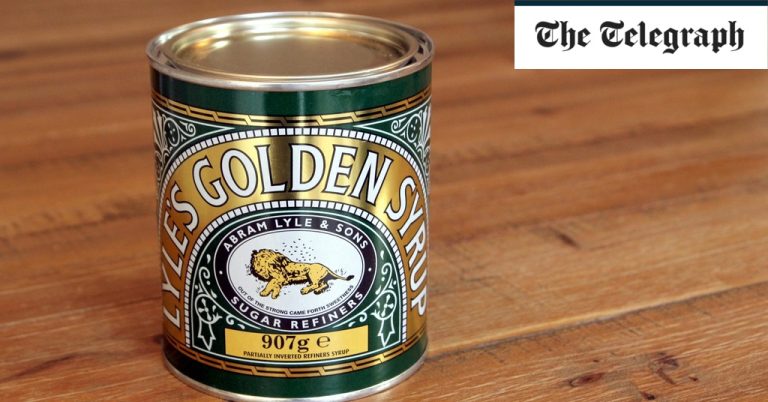Samson posed a riddle to the Philistines. “From the eater came something to eat, from the strong came something sweet. » The Philistines couldn’t get it. And neither, it seems that’s the case our modern-day Philistines – despite the fact that the generations before them were raised on Bible stories like this.
Samson kills a lion with his bare hands and a swarm of bees makes honey from his carcass. That’s why, since 1888, Tate & Lyle’s Golden Syrup has featured the image of a dead lion with bees buzzing over it – and it’s in the Guinness Book of World Records as the oldest unchanged brand in the world. world. Abram Lyle was an elder in the Presbyterian Church of Scotland. He knew his Bible, just like the people who poured his product on their porridge and sponge puddings.
But not anymore. The famous lion and bees image has been replaced by a generic design – or “fresh and contemporary” in the words of brand director Tate & Lyle. The lion has been reinvented, the Christian symbolism lost. As one marketing expert says: “The story that it comes from a religious belief could put the brand in an exclusionary space, especially if it went viral on X or TikTok.” Samson also killed a thousand Philistines with the jawbone of a donkey. This kind of statement makes me want to make one myself.
In itself, I suppose this sort of thing doesn’t matter much. After all, it’s just a flavored sugar syrup – and I’m diabetic. Christians often overreact to perceived slights and are seen as petty. So I’m going to drop my jaw. But nonetheless, it presses many of our buttons because it remains indicative of a depressing new type of philistinism that has become all too prevalent – the idea that if cultural references have some religious dimension, they must be removed from a so-called inclusive space.
Secular once meant a place where all faiths, and none, were encouraged to flourish. But it has now transformed into a place where religion must be excluded from the public sphere. Samson is common to Jews and Christians. And although he is not specifically mentioned in the Quran, he is revered in Islamic tradition as Sham’un. Characters like Samson are threads that connect otherwise very different religious traditions. Yet, in the name of inclusion, a whole world of cultural references must be excluded – because they are apparently exclusive. The logic here is crazy.
It is also important that in a post-Christian world, the Bible is no longer seen as a common framework of cultural reference – because without a basic knowledge of the biblical stories, much of our inherited culture simply makes no sense. Even for those who did not attend church, reading the Bible stories was essential, essential to understanding Shakespeare, Milton and Handel, as well as most of the paintings in the National Gallery.
The irony is that so-called identity politics so often attacks the roots of our identity. For who we are is not just something we have magically imagined in a cultural vacuum, but is the result of a thousand thousand inherited cultural reference points, established over time. These constitute the context in which things take on their full meaning. Of course, tradition should not become a kind of cultural prison. And a vigorous culture constantly reinvents itself. But the idea that we might erase the West’s most formative cultural influence, Christianity, in the name of inclusion threatens to create a generation of restless, rootless wanderers, for whom the building blocks of their own identity is more than ever. ephemeral popular culture and, worse, simply how they feel. And this is the very essence of what we call philistinism.
So the dead lion counts. The use of the word philistine as a pejorative in the English language dates back to the Anglican clergyman Matthew Arnold who also wrote of the “melancholy, long, withdrawn roar” of “the sea of faith”. This famous poem, On the Beach at Dover, ends with a warning about what a post-Christian culture might look like: “Swept by confused alarms of fight and flight, Where ignorant armies clash by night.” » This sounds a little too much like where we are today.


